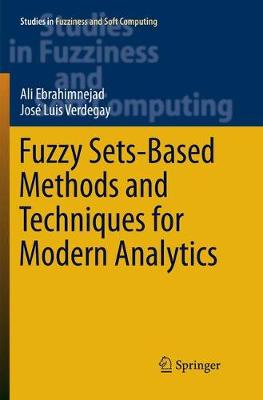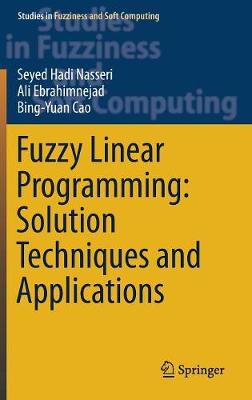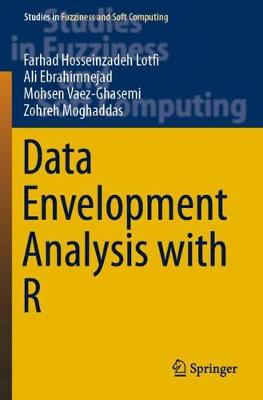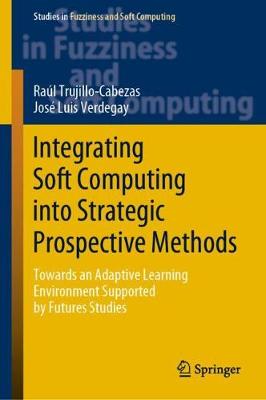Studies in Fuzziness and Soft Computing
4 primary works
Book 364
Fuzzy Sets-Based Methods and Techniques for Modern Analytics
by Ali Ebrahimnejad and Jose Luis Verdegay
The book offers a comprehensive, practice-oriented introduction to the field of fuzzy mathematical programming (FMP) as key topic of modern analytics. FMP plays a fundamental role in dealing with a varied range of problems, such as those concerning smart cities, sustainability, and renewable energies. This book includes an introduction to the basic concepts, together with extensive information on the computational-intelligence-based optimization models and techniques that have been used to date. Special emphasis is given to fuzzy transportation problems. The book is a valuable resource for researchers, data scientists and practitioners dealing with computational-intelligence-based optimization models for analytics.
Book 379
Fuzzy Linear Programming: Solution Techniques and Applications
by Seyed Hadi Nasseri, Ali Ebrahimnejad, and Bing-Yuan Cao
This book presents the necessary and essential backgrounds of fuzzy set theory and linear programming, particularly a broad range of common Fuzzy Linear Programming (FLP) models and related, convenient solution techniques. These models and methods belong to three common classes of fuzzy linear programming, namely: (i) FLP problems in which all coefficients are fuzzy numbers, (ii) FLP problems in which the right-hand-side vectors and the decision variables are fuzzy numbers, and (iii) FLP problems in which the cost coefficients, the right-hand-side vectors and the decision variables are fuzzy numbers.
The book essentially generalizes the well-known solution algorithms used in linear programming to the fuzzy environment. Accordingly, it can be used not only as a textbook, teaching material or reference book for undergraduate and graduate students in courses on applied mathematics, computer science, management science, industrial engineering, artificial intelligence, fuzzy information processes, and operations research, but can also serve as a reference book for researchers in these fields, especially those engaged in optimization and soft computing. For textbook purposes, it also includes simple and illustrative examples to help readers who are new to the field.
Book 386
Data Envelopment Analysis with R
by Farhad Hosseinzadeh Lotfi, Ali Ebrahimnejad, Mohsen Vaez-Ghasemi, and Zohreh Moghaddas
This book introduces readers to the use of R codes for optimization problems. First, it provides the necessary background to understand data envelopment analysis (DEA), with a special emphasis on fuzzy DEA. It then describes DEA models, including fuzzy DEA models, and shows how to use them to solve optimization problems with R. Further, it discusses the main advantages of R in optimization problems, and provides R codes based on real-world data sets throughout. Offering a comprehensive review of DEA and fuzzy DEA models and the corresponding R codes, this practice-oriented reference guide is intended for masters and Ph.D. students in various disciplines, as well as practitioners and researchers.
Book 387
Integrating Soft Computing into Strategic Prospective Methods
by Raul Trujillo-Cabezas and Jose Luis Verdegay
This book discusses how to build optimization tools able to generate better future studies. It aims at showing how these tools can be used to develop an adaptive learning environment that can be used for decision making in the presence of uncertainties. The book starts with existing fuzzy techniques and multicriteria decision making approaches and shows how to combine them in more effective tools to model future events and take therefore better decisions. The first part of the book is dedicated to the theories behind fuzzy optimization and fuzzy cognitive map, while the second part presents new approaches developed by the authors with their practical application to trend impact analysis, scenario planning and strategic formulation. The book is aimed at two groups of readers, interested in linking the future studies with artificial intelligence. The first group includes social scientists seeking for improved methods for strategic prospective. The second group includes computer scientists and engineers seeking for new applications and current developments of Soft Computing methods for forecasting in social science, but not limited to this.



